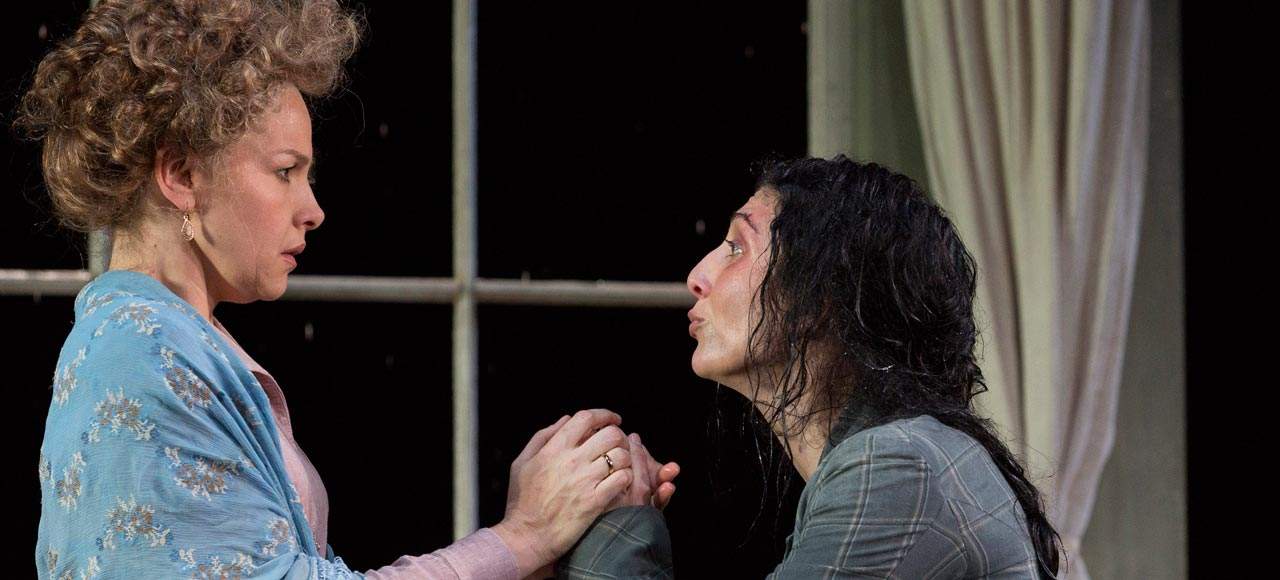Children of the Sun – Sydney Theatre Company
A brilliant cast and something of the spirit of insurrection set the Opera House alight.
Overview
As the spirit of insurrection and a brilliant cast threaten to set the Opera House alight, it’s hard not to wonder whether there’s a revolution or two taking place in Maxim Gorky’s grave.
Children of the Sun (directed by Kip Williams and adapted by Andrew Upton) was originally penned in 1905 by Russian author Gorky, a Bolshevik sympathiser before it was cool, a prolific writer and a man thoroughly unafraid to ruffle bureaucratic feathers (rumour has it that Stalin had him poisoned).
Set in 1862, during a cholera epidemic, the play explores class tensions and the wider plight of Russia through the eyes of an ensemble of naive middle-class characters. Armed with this knowledge, I expected (completely illogically) to be met by a wall of grey punctuated by the odd widow wailing next to an open grave. What I got, for the most part, was a wonderfully acted, skilfully directed romantic comedy in which everybody, in true Russian fashion, ends up dead.
Children of the Sun is a play of failed revolutions. It takes place in the house of Protasov (Toby Truslove), a scientist seemingly on the verge of a major breakthrough whose only tangible offering is a series of worsening smells. While he's oblivious to everything outside of his laboratory, including the advances of the desperately daft Melaniya (a hilarious Helen Thomson), his wife, Yelena (Justine Clarke), is courted by Vageen (Hamish Michael), a ridiculous chap in the throes of an artistic revolution that has failed to find any followers.
Meanwhile, it is only Protasov’s sister, Liza (Jacqueline McKenzie), who has noticed the growing unrest in the world outside. Her warnings about the need for reform are trampled by the officious maidservant Nanny (Valerie Bader) and the proposals of Boris (Chris Ryan), Protasov’s best friend.
A few undisguised flats make up the house, with the cluttered sitting room and courtyard revolving to provide occasional glimpses of a dingy laboratory and servants’ quarters. Despite a relatively small cast, Williams’ direction brings the house alive, filling the large space with a bustling energy and momentum.
One of the only drawbacks is the text itself. Williams and Upton both mention the way in which Gorky’s play speaks to contemporary audiences, but the imposition of a relentlessly modern vernacular on the piece robs it of the chance. It's steeped in anachronism and jarring humour. This made it no less entertaining, but as I left the theatre, I did so with the sneaking suspicion that much of Gorky’s original intent had been thrown out the window. In an interview with the Sydney Morning Herald, Upton remarked that the play is “first and foremost about love”. It’s virtually impossible to see how Gorky, writing from a prison cell in response to a failed revolution in which scores of his countrymen died, could have arrived at the same conclusion.





